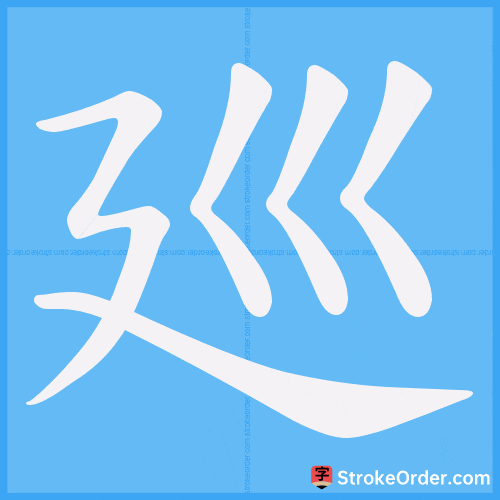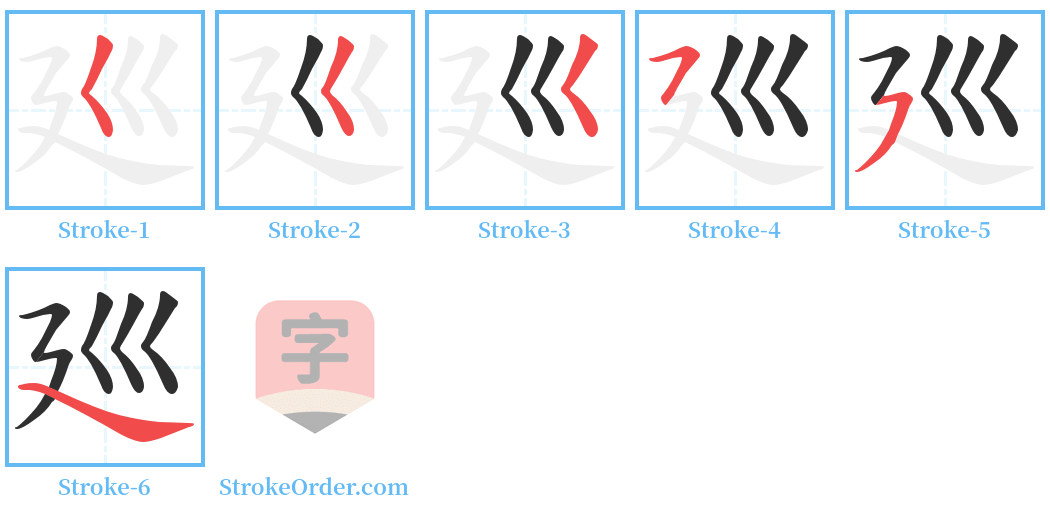廵 Stroke Order
Animated Stroke Order of 廵

Stroke Order Diagrams for 廵

Information of 廵
Pinyin
xún
Radical
廴
Strokes
5 strokes
Usage
★★
Definition
廵:
1. Same as "巡" (xún), meaning to patrol or to inspect.
2. (Phonetic-semantic compound. From "辵" (chuò), the sound of "川". Primary meaning: to inspect various places; to patrol). “巡” means to inspect during travel.
- "Five years of guarding patrols." — From "说文" (Shuōwén).
- "In the Zhou system, there was a patrol every twelve years; in the Yin system, every six years." — From "虞书" (Yúshū), Zheng's commentary: "To travel and inspect what is guarded."
- "During the day, there were three patrols." — From "孟子" (Mèngzǐ).
- "The servant patrols the palace." — From "左传" (Zuǒzhuàn), 31st year of Xianggong.
- "To patrol the city." — From "左传" (Zuǒzhuàn), 9th year of Xianggong.
- "Guests should patrol their path." — From "周礼" (Zhōulǐ).
- "Elder brother, I will go patrol the mountains; you should not follow me to listen." — From "西游记" (Xīyóujì).
- "I followed the ruler and patrolled the world, which had many grievances." — From "国语" (Guóyǔ).
3. To examine; to look closely.
- "The ruler inspects the sacrificial animals." — From "礼记" (Lǐjì).